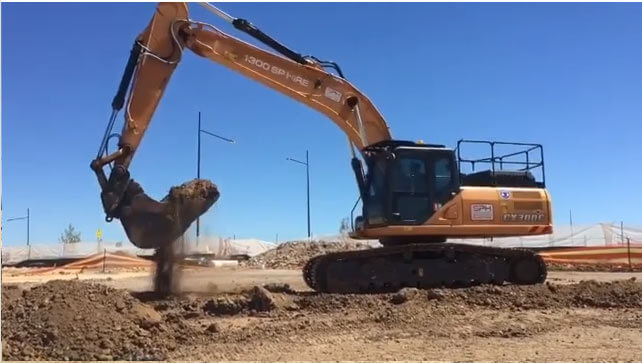As part of a broader category of plant machinery that includes backhoes, bulldozers, graders, scrapers, rollers and forklift trucks, excavator operators require a specific skill set and expertise to operate properly. It’s a health & safety requirement to make sure that on any worksite only a properly qualified person is operating the excavator. Find out here how to become an excavator operator in Australia.
What are the requirements to become an excavator operator?
Most people have the basic attributes necessary to be able to operate an excavator.
These traits include:
- The physical ability to handle machinery (as heavy machines excavators can require some exertion to operate).
- Good eyesight (with glasses or contacts to assist if necessary).
- The ability to work as part of a team, and the awareness of what other people around you are doing.
- The willingness to follow precise instructions.
- Good hand-eye coordination, as excavators can require precise manipulation.
And, of course, you need to be comfortable in working on work sites. This means (especially in Australia) being comfortable with hot working conditions, and being able to work relaxed and without stress in noisy, muddy and dusty environments. Despite many excavators now being air conditioned and soundproofed, not all are and so you will need to be prepared for a diverse range of working conditions (if you operate a Solution Plant Hire machine you can rest easy, all our equipment is air conditioned!).
What are the qualifications you need?
There aren’t any formal qualifications required to operate an excavator as standard. In many cases you will be able to get informal training while on the job itself.
If you do want to get formal qualifications, and therefore enhance your employment opportunities (employers will naturally gravitate towards experienced operators with a full suite of qualifications), then each state provides its own range of certificates and qualifications that can be obtained through government-owned tertiary institutions. Often the skills to operate an excavator will be rolled into broader certificates in mobile plant operations, but in some cases it will be possible to get specialist qualifications as well.
Because these certificates and qualifications will vary from state to state, you’ll need to investigate what is available to your local area. Qualifications that you earn in one state should still be recognised as skills that make you a valuable employee in another state, should you relocate.
What else you need to know
Under some circumstances, being able to operate an excavator won’t be enough. For example, regulators such as WorkCover or WorkSafe will often require that people who operate an excavator – or any other piece of heavy machinery – also have a Perform High Risk Work license. So, while you’ll be able to jump in an excavator and manipulate it with a minimum of training, in many work environments your employer will still not allow you to work at risk of running into trouble with the regulators.
Getting a Perform High Risk Work license isn’t too onerous. You’ll need to register with what’s called a Registered Training Organisation – basically, an educator the government considers to be legitimate – and from there you’ll spend some time working under the supervision of a licensed operator.
Just like when you’re going for your car driver’s license, you’ll also need to keep an approved logbook that you’ll use to record competencies you’ve achieved, and milestones that you’ve reached, through the training period.
Once you’re experienced enough, just like in a driver’s exam, an independent assessor will be required to determine if you should be given the Perform High Risk Work license.
In addition to this training requirement, you’ll need to be at least 18 years old to obtain the license, though sometimes in the case of trainees or apprentices, an employer will be willing to bring someone on as young as 16 (having left school at year 10) in order to start their training earlier, as it’s possible to register to start the training process younger than 18.
Finally, it’s important to note that anyone who works in the construction industry is also required to undertake a safety induction training course. At the conclusion of that you’ll be issued with a Construction Induction Card (CIC).
Need more information?
Whether you’re the manager of a worksite, an employee looking to upskill or an individual looking to hire an excavator for a personal project, it’s important to fully understand the regulations and health and safety requirements for the operation of excavators.
There’s further information (particularly from the site manager’s point of view) available here.
Most work sites will need licensed operators, and this means there’s ongoing job opportunity growth for properly qualified operators in Australia. If you’ve got an interest in the construction space, this is a good opportunity for career development and income stability.




